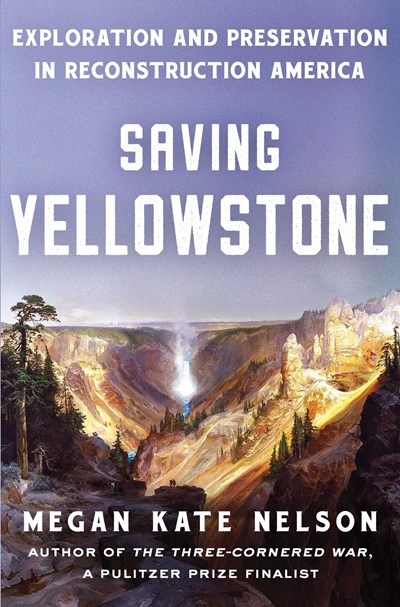Saving Yellowstone by Megan Kate Nelson
The history of Yellowstone is checkered with altruism, egotism, greed and cruelty juxtaposed with notions of preserving important natural features for the enjoyment of the people. Great effort went into the conservation of what we now view as one of our nation’s greatest treasures.
It’s safe to say that everyone knows about Yellowstone. It’s a place that is much talked about and visited by millions of people from around the world. This history of how it came to be the place we now know is less well known and it provides a fascinating look at not only conservation and natural history but the politics of genocide and western expansion. From the point of view of modern Americans the dismissal of the rights of the people living in this country by the white interlopers is appalling. At the time it was generally assumed that for the country to fulfill its potential the natives would have to be exterminated or at the very least subjugated and accultured to the contemporary societal mold. There were few who resisted the move to acquire the lands occupied by the Indians, even if they balked at their outright massacre.
The tale is an interesting one, for sure, but the detail to which the author has gone to obtain the specifics is impressive. It is no small feat to distill an ocean of facts into a readable narrative. A look at the author’s notes and bibliography is enough to show that the research done for this book was exhaustive. Fact-rich smoothly flowing prose is difficult, but Nelson has achieved it here, in spades. There is a fine balance between enough documentation and too much. Here we have that knife-edge navigated with skill. There is also a joy in the telling that comes through in indefinable ways, but it is clearly evident that this author likes what she does. That is good for us, since the result is a pleasure to read.
Anyone who loves nature, has concerns about the preservation of natural wonders, is interested in our nation’s history or wants to know more about the western expansion and its effects on indigenous populations will find this a gratifying read.



